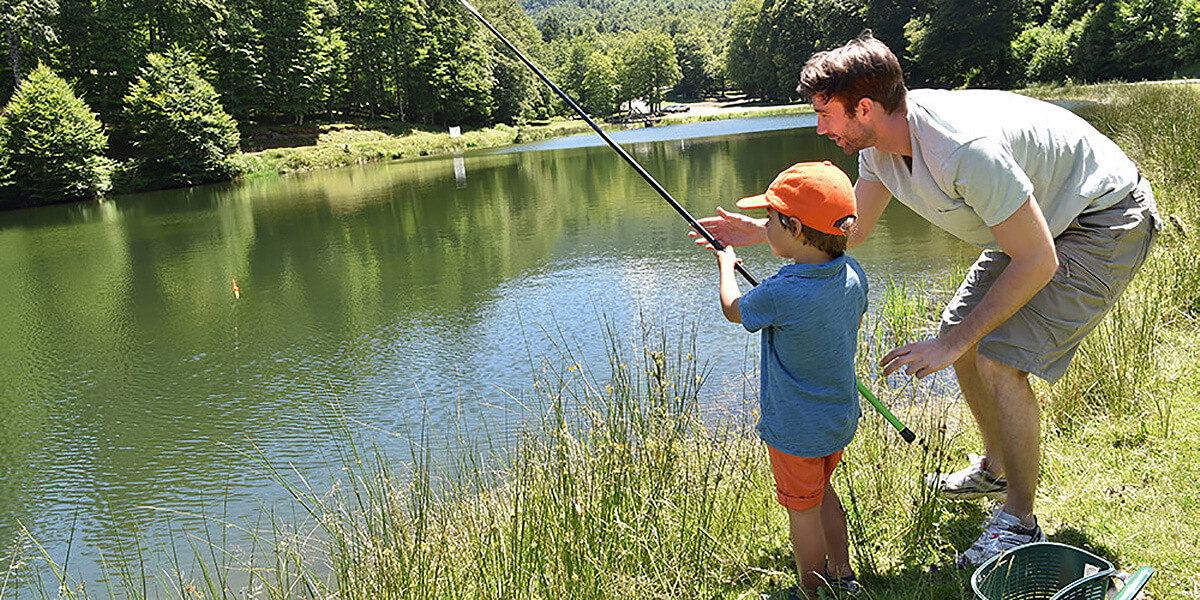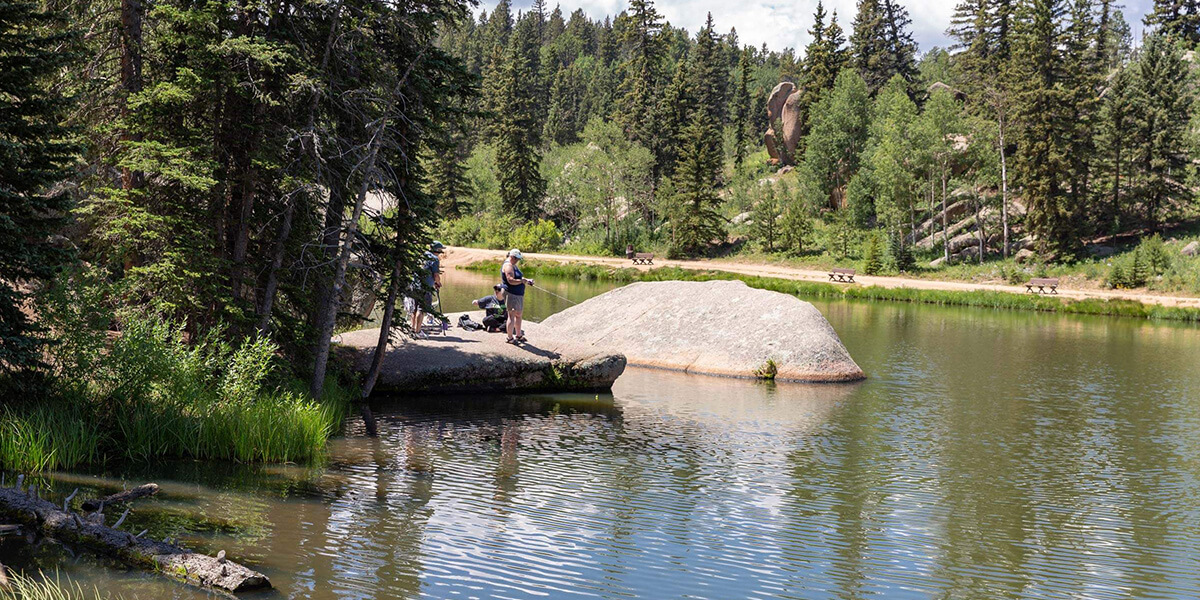-
How many fish can I catch?
There is a daily catch limit of three (3) fish with no size restriction. Fishermen under 16 years of age without a permit may keep two (2) fish; they make keep the daily limit of three (3) fish if an annual or one-day permit is purchased on their behalf. The grass carp are stocked for aquatic weed control and must be released.
-
Is fishing available year round?
Farish opens full time for the season mid-May through Mid-October with occasional winter pop-up days. See the Farish website for the most up-to-date information.
-
Is ice fishing allowed?
Ice fishing is prohibited on all Academy lakes; however, Farish Recreation Area may periodically open for ice fishing.
-
Can I swim in the lake?
No; swimming, boating, rafting, tubing (excluding float tubes and paddleboat rentals at Farish Recreation Area) are prohibited in lakes and streams.
-
Where can I dispose of trash and fishing line?
Trash receptacles are located throughout fishing areas. If you are not located near a trash receptacle, please take your trash with you. Cleaning and disposing of entrails in the lakes is prohibited.
-
What kind of bait is prohibited?
Chumming and the use of minnow traps, seines, trotlines, or floating jugs is prohibited. The use of corn bait and live minnows is also prohibited.
-
What disability accommodations are available?
Mobility-impaired fishermen with a handicap driver’s license or placard can apply for a Defense Biometric Identification System (DBIDS) badge that grants access to the Davis Airfield’s west gate. This gate provides access to the Kettle Lake 2 and 3 without walking so far and the ability to drive up to the ADA accessible fishing pier located on Kettle Lake 3.
The Air Force Academy’s Ice Lake is directly accessible by car for mobility-impaired fisherman, while Deadman’s Lake requires hiking a short trail to get to the lake. At Farish Recreational Area, Grace Lake has the best access for the mobility-impaired fishermen, since everyone can drive right up to it.
Please call the Natural Resources Office at (719) 333-3308 to complete your DBIDS paperwork, which will be processed and issued at the Pass and Registration Center – located outside of the South Gate at Exit 150. Airfield DBIDS badges are valid for one-year and can only be renewed within 30 days of expiration
-
Are there aquatic invasive species and diseases I need to be aware of?
Nuisance fish such as goldfish, koi, European rudd, and crappie occur in most of the lakes. If caught, these fish should be disposed of in the available trash containers. Although the Academy stocks only whirling disease-free trout, the parasite that causes this disease does occur in the lakes. Most stocked trout are not in the lakes long enough to contract and display the symptoms of whirling disease, though infected fish are safe for human consumption with proper cooking.
Anchor worm is a prevalent fish parasite, characterized by bumpy sores that can cover the body of infected fish. Although the fish can look unsightly, anchor worm does not pose a human health risk and infected fish are safe to consume with proper cooking.
-
How can I help prevent aquatic invasive species and diseases?
To help protect our lakes from non-native aquatic species, do not dump bait fish or aquarium fish in the lakes; do not transfer fish between the lakes; do not clean fish and dispose of the entrails in the lakes; clean all fishing tackle and gear; and disinfect waders and float tubes with a 10% bleach solution.

